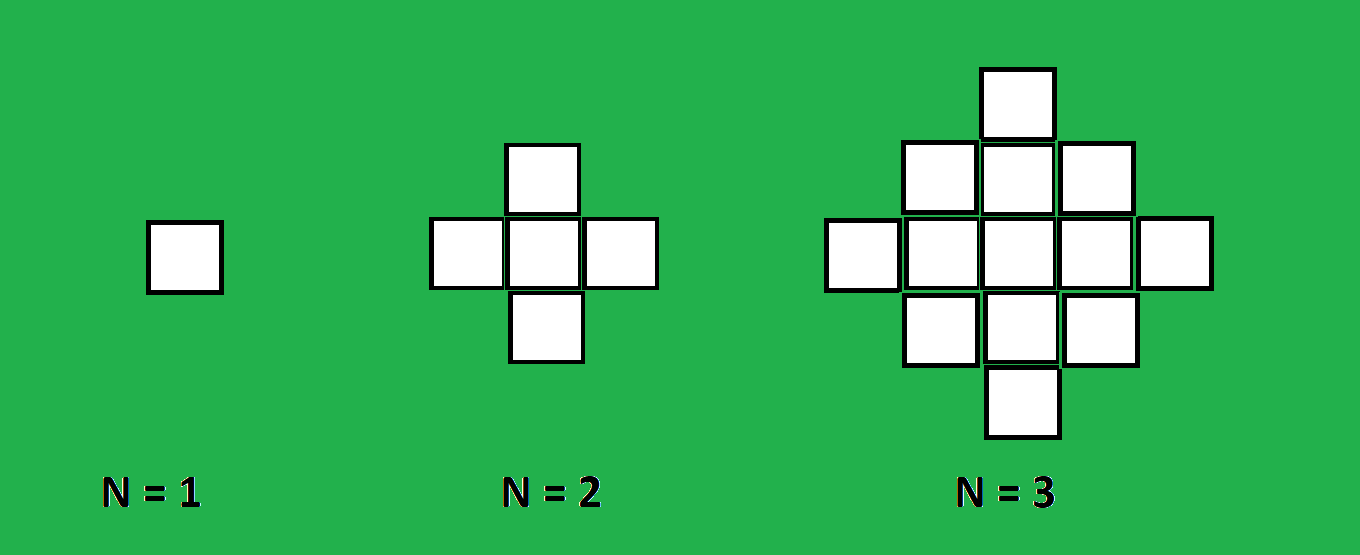给定整数N ,任务是查找给定类型的第N个阶图中的像元数:

例子:
Input: N = 2
Output: 5
Input: N = 3
Output: 13
方法:可以观察到,对于N = 1,2,3,…的序列将形成为1,5,13,25,41,61,85,113,145,181,…,其第N个项将是N 2 +(N – 1) 2 。
下面是上述方法的实现:
C++
// C++ implementation of the approach
#include
using namespace std;
// Function to return the number
// of cells in the nth order
// figure of the given type
int cntCells(int n)
{
int cells = pow(n, 2) + pow(n - 1, 2);
return cells;
}
// Driver code
int main()
{
int n = 3;
cout << cntCells(n);
return 0;
} Java
// Java implementation of the approach
class GFG
{
// Function to return the number
// of cells in the nth order
// figure of the given type
static int cntCells(int n)
{
int cells = (int)Math.pow(n, 2) +
(int)Math.pow(n - 1, 2);
return cells;
}
// Driver code
public static void main(String[] args)
{
int n = 3;
System.out.println(cntCells(n));
}
}
// This code is contributed by Code_MechPython3
# Python3 implementation of the approach
# Function to return the number
# of cells in the nth order
# figure of the given type
def cntCells(n) :
cells = pow(n, 2) + pow(n - 1, 2);
return cells;
# Driver code
if __name__ == "__main__" :
n = 3;
print(cntCells(n));
# This code is contributed by AnkitRai01C#
// C# implementation of the approach
using System;
class GFG
{
// Function to return the number
// of cells in the nth order
// figure of the given type
static int cntCells(int n)
{
int cells = (int)Math.Pow(n, 2) +
(int)Math.Pow(n - 1, 2);
return cells;
}
// Driver code
public static void Main(String[] args)
{
int n = 3;
Console.WriteLine(cntCells(n));
}
}
// This code is contributed by 29AjayKumarJavascript
输出:
13